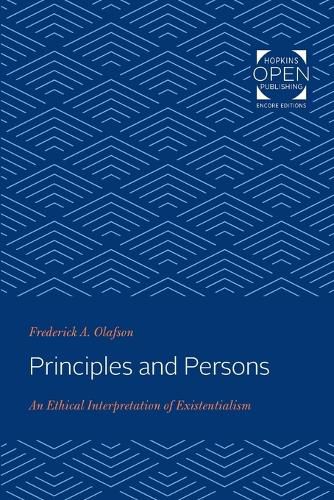Readings Newsletter
Become a Readings Member to make your shopping experience even easier.
Sign in or sign up for free!
You’re not far away from qualifying for FREE standard shipping within Australia
You’ve qualified for FREE standard shipping within Australia
The cart is loading…






Originally published in 1967. Many critics have claimed that existentialism has not produced any ethics, as distinct from the moralistic assertions of its individual proponents. Challenging this view, Professor Olafson demonstrates that Sartre, Heidegger, and Merleau-Ponty indeed worked out a powerful ethical theory and that their positions must be understood as deriving from a voluntarist concept of moral autonomy that can be traced beyond Nietzsche and Kant to certain tendencies in late-medieval thought. He demonstrates that a broad parallelism exists between developments in ethical theory among Continental philosophers of the phenomenological persuasion and the more analytically inclined philosophers of the English-speaking world.
$9.00 standard shipping within Australia
FREE standard shipping within Australia for orders over $100.00
Express & International shipping calculated at checkout
Originally published in 1967. Many critics have claimed that existentialism has not produced any ethics, as distinct from the moralistic assertions of its individual proponents. Challenging this view, Professor Olafson demonstrates that Sartre, Heidegger, and Merleau-Ponty indeed worked out a powerful ethical theory and that their positions must be understood as deriving from a voluntarist concept of moral autonomy that can be traced beyond Nietzsche and Kant to certain tendencies in late-medieval thought. He demonstrates that a broad parallelism exists between developments in ethical theory among Continental philosophers of the phenomenological persuasion and the more analytically inclined philosophers of the English-speaking world.